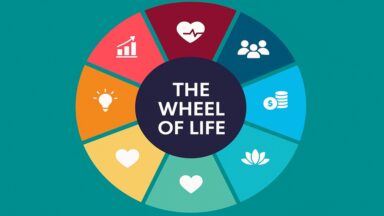Investors Urge Apple To Curb Childhood Social Media Addiction

In an age where technology is becoming intrinsically connected to every aspect of our lives, some are starting to grow concerned about the increasingly younger age at which we introduce our children to smart phones and gadgets – including two of Apple’s biggest investors.
In a Jan. 6 letter sent to Apple from investors Jana Partners and The California State Teachers’ Retirement System, the shareholders expressed concern over childhood addiction to social media and electronic devices. The two groups urged Apple to offer parents more choices and tools to help ensure that kids use the company’s products in an “optimal manner.”
The letter acknowledged the pervasiveness of Apple products among children and teenagers, and the unintentional negative consequences that may be coming from the omnipresence of social media in young people’s lives.

The letter likely comes in response to viral videos of a former Facebook vice president who has been vociferous in his regret for the role he played perpetuating social media’s impact on our society. A number of media outlets have posted videos of Chamath Palihapitiya, former VP for user growth at Facebook, for his comments stating that social media is destroying society with dopamine-driven feedback loops.
Jana Partners LLC, a hedge fund started by activist investor Barry Rosenstein, touts itself as being an actively engaged shareholder that specializes in event-driven investing. The California State Teachers’ Retirement System is the largest educator-only pension fund in the world that represents nearly a million public school educators. Together the two investors own a $2 billion stake in Apple.
The investors’ letter to Apple cited a number of statistics showing the negative impact that the role of social media and technology has on youth. It says that in the past 3 to 5 years since personal technology has entered the classroom, 90 percent of teachers said the number of students with emotional challenges has increased and 86 percent of teachers said that the number of students with social challenges has increased.
The letter also pointed to increased rates of depression, sleep deprivation, and suicide risk factors in children and teenagers spending significant time on social media and electronic devices.
In response, Apple has promised to introduce new features and tools to help parents and teachers curb the extensive use and addiction to these technologies.
Mindfulness Techniques Dramatically Improve Kids' Sleep in Study

A new study shows that training children in mindfulness techniques can dramatically improve their sleep.
Recent statistics suggest we are in the midst of an epidemic of poor sleep, and children are especially vulnerable to the consequences.
Dr. Christina Chick is a developmental psychologist who recently headed a study at Stanford University that looked at a mindfulness-based solution to sleep issues in children.
“Kids, depending on the age, but between elementary school and junior high, should really be getting nine to 11 hours of sleep per night,” Chick said. “The best data that we have suggests that most kids on average are getting seven hours. So, if you think about that, on average, at least two hours loss night after night after night, that adds up to compound to a significant loss of the restorative functions of sleep.”
Research is continually uncovering the many vital functions that only happen during sleep and are essential for overall health, particularly in children.
“We think of sleep as a passive process, and in fact, it’s a very active one,” Chick said. “So, when your body goes to sleep, your brain in many ways goes to work. Part of that work is consolidating memories, so all of that wonderful learning that happens during the school day, but also social and emotional memory. Sleep is also when a lot of growing happens; if kids are losing out on two hours plus of sleep per night, that starts to add up to a disadvantage over time.”





































